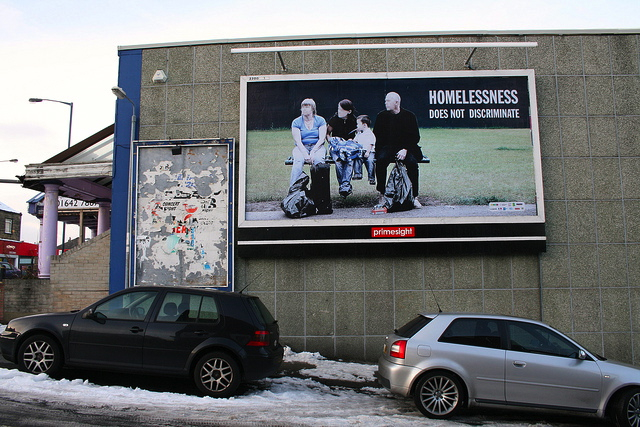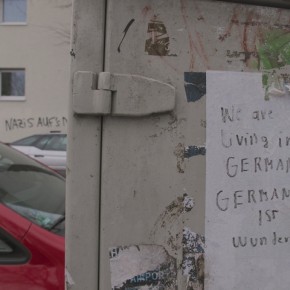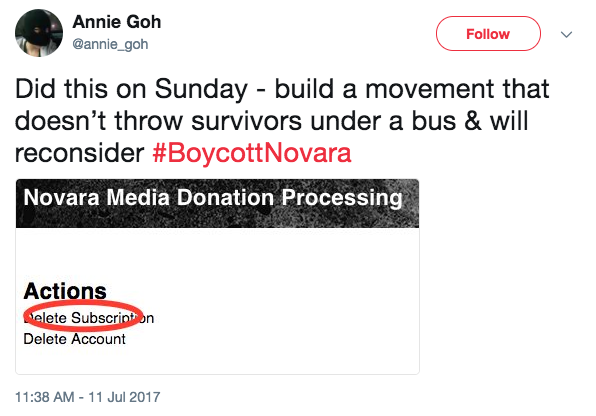Four years ago, David Armano opened his home to a Romanian immigrant and her three kids (one with Down’s Syndrome.) The woman — Daniela — had lost her home due to an unpaid mortgage, was divorcing her spouse after years of abuse, and had nowhere to go other than a shelter. David appealed to the followers of his very popular blog and Twitter account to help him raise $5,000 via ChipIn, in order to enable Daniela to secure an apartment. In less than 24 hours, $12,000 had been donated. Ultimately, nearly $17,000 was raised via the monetary contributions of 545 people. Non-monetary donations included furniture and toys.
During this effort, the already heavy traffic to David’s blog exceeded ten times what was normal traffic for his site. Untold numbers of visitors tweeted, retweeted, and blogged information about the fundraiser, causing Daniela’s name to quickly rise to the top of Twitter’s list of trending topics. According to Google’s PageRank,the site rose to the 8th spot of its most popular search results, out of 42 million searches. David issued emotional words of thanks on behalf of himself, his wife, and Daniela via a video (see “The Spirit of Social Media“), his blog, and Twitter. Daniela probably knew none of the contributors personally. Undoubtedly, David knew only a few, himself.
After much discussion and debate (online and offline,) Scott rescinded his feelings of regret. However, not until David took additional steps, including creating and maintaining a blog to document what happened next to Daniela and her kids.
Since then, numerous fundraisers of a related nature have been facilitated by social media, with varying degrees of success. One fundraiser in particular captured my attention: a fundraiser for me, held two years ago. Like the fundraiser for Daniela and her kids, it, too, was successful. In less than two days, $10,000 had been donated. Ultimately, $20,250 was contributed before the fundraising had ended. And there were additional donations, including food, use of a FasTrak toll tag, research on my behalf, a subscription to a health information website, cinema tickets, offers of additional assistance, and, importantly, genuine emotional support.
During this effort, daily visits to my “nightmare” blog rose from an average of less than 20 to a maximum of 1,050 (which happened on the fundraiser’s second day.) Encouragement to contribute was tweeted and retweeted many times by more than 100 Twitter accounts (most during the fundraiser’s initial week,) and I saw several similar postings on Facebook (though I had no way of determining the total number.) Without question, the numbers paled in comparison to those recorded during the fundraiser for Daniela; yet…
As this was happening, I was overwhelmed emotionally. Tears would often stream down my face when I checked the fundraiser’s status, read the relevant tweets and retweets, and the comments of those who donated. (The fundraiser ended on May 11, but you can still access the fundraiser webpage, complete with comments and donation amounts.) Jonathan Arnowitz, a key member of the calvary that had arrived, was similarly affected as reflected in a posting on his Facebook wall. I thanked contributors via Facebook, thanked all (re)tweeters directly via Twitter, thanked a subset of contributors in person, and, having received a list of email addresses of contributors who provided an email address via the fundraiser webpage, will thank a larger subset directly after I post this piece to my blog. I know many of the contributors personally, but not all.
Perspective is important, especially the one I brought to bear on the kindness being shown me. With good reasons. While my life was being torn apart two years earlier, I was repeatedly told that I was inadequately thankful. As my inability to speak and function normally was being belittled and mocked, and as I was being yelled at for all sorts of perplexing reasons, including my being “negative” (i.e., objecting to or even just questioning what was being done “for” me,) I was told that I was not saying “thank you” enough. Unfortunately, I found myself in similar situations subsequently.
In some situations, words of thanks are simply inappropriate. In other situations, words of thanks are appropriately not enough.
In some situations, people won’t give unless they have already received (as was said to have been true for many in the case of the Daniela fundraiser, since so many had received much from David’s excellent blog and tweets.) In some situations, people will give, but will then desire or expect to receive something in return.
Sometimes what is desired or expected in return is inappropriate — sometimes very inappropriate, as, unfortunately, I experienced.
In the wake of the Daniela fundraiser, “selfish altruism” was proclaimed to be inappropriate, as referenced earlier. Recently, Akhila Kolisetty wrote, “We cannot donate or volunteer just to feel good about ourselves. Social justice will only come if we … give up any desire to feel warm and fuzzy inside…”
To encourage more (and, from some perspectives, more appropriate) giving, public services are starting to be designed around platforms for reciprocal exchange (i.e., “the act of giving is matched by a specific benefit received in kind”).
To encourage more giving, some homeless people on the streets of San Francisco hand out a copy of Street Spirit — a publication about “homelessness, poverty, economic inequality, welfare issues, human rights issues and the struggle for social justice” — in exchange for $1. Interestingly, Evan Hamilton suggests converting that publication into “a product that we want to buy. Appeal to both our need to seem like a good person AND our personal desire for entertainment. Make Street Spirit an all-comics newspaper and the homeless will make a lot more money.” (Those who frown on giving money directly to the homeless regardless of what is received in return should take a look at an Economist article entitled Cutting out the middle men.)
To encourage more giving to fundraisers facilitated by Kickstarter, Alissa Walker recommends doing what Frank Chimero did, to raise more than four times his goal of $27,000 to enable him to write and publish a book. One key to the success of any fundraising effort via Kickstarter is probably the nature of the commitments made in return for donations. According to Frank, “if you do it right, it’s less about asking people to give you money…, and more about saying ‘I’m about to go on this journey. Do you want to come with me?'”
Comments made by those who contributed to the fundraiser held for me via GiveForward suggest that, in many cases, people gave because of what they and/or my profession(al community) had already received from me over the years. And some gave simply because they were inspired by my courage and fortitude.
Many, however, gave expressing hope that, in response, I would achieve “a complete recovery — physical, financial, (professional,) and spiritual/emotional.” (Indeed, I’m working on it!) Some gave hoping that, in response, I would work to address the problems that nearly destroyed my life and have (nearly) destroyed the lives of others; as one contributor put it: “When you get better, you will help all of us get better. Time to fix that damn health care system, and you can lead that calvary.”
In 2011, I walked by someone apparently homeless, and in obvious need, shivering in a doorway on a street in San Francisco. As I walked by, he said “hello” and wished me a good evening. Though I, too, was homeless and in need, I felt the weight of a solitary dollar bill in the right front pocket of my pants. After having walked a half block further, I turned, took that bill from my pocket, returned to the man, and gave him the dollar. He took the bill, examined it carefully, put it in his pocket, and resumed his shivering in the cold. He did not say thanks, but, in his case, I did not care.
However, to those of you who have given to me what I have needed (and without inappropriate expectations regarding what you are to receive in return,) I say again — and will say again and again and again — my dearest thanks.





